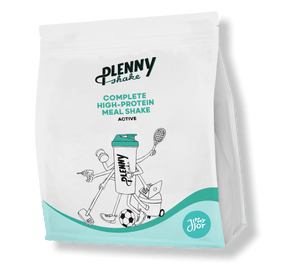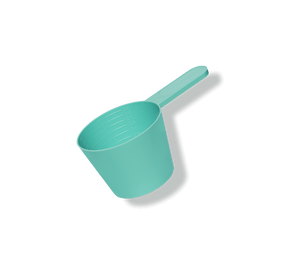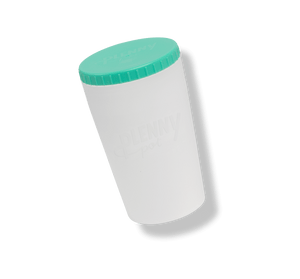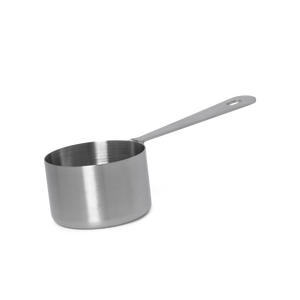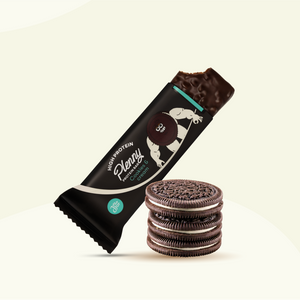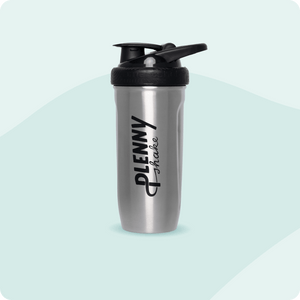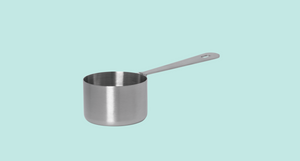Updated on February 13th, 2024
We all know that when you say "I need coffee”, you actually mean “I need caffeine” - and it seems we just can't get enough of the stuff! On the flip side, coffee and caffeine are associated with some negative effects: insomnia, hypertension, dehydration, and so on. Since many people drink coffee, often even multiple times a day [1], we felt it was our civic duty as a nutritionally complete food company to investigate if any of these negative effects associated with coffee and caffeine are actually true.
The Good, the Bad, and the Myths
Most of us can probably relate: if we had to choose between coffee or cereal, the first thing we’d consume in the morning would definitely be the drink – not just because we love the flavour, but because we "need" it. We can still feel the sleep in our eyes, our movements are sluggish, and we feel that between going back to bed, or drinking a cup of coffee, the latter is probably better as it won’t get us fired.
But why do we feel like we need it?
When digested, caffeine partly goes to your brain, where it picks a fight with adenosine, the neurotransmitter responsible for making you feel drowsy [2].
As the day passes, adenosine gets produced because you’re doing physical work, or because you’re using your brain intensively. Adenosine then sort of floats around until it finds a receptor it can bind to, which causes your muscles to relax and makes you feel sleepy [3, 4]. But caffeine prevents this from happening. Caffeine has a similar chemical structure to adenosine, but it doesn’t bind to the adenosine receptors - it just blocks them [5]. Just imagine your dog, hopping onto your favourite chair and claiming it. It wasn’t made for him, but he still sits on it. Rude.

Ideally, you wake up without any adenosine molecules in your system. Getting a good night’s sleep should metabolise them [6], but if you don’t sleep (well) enough, some of those molecules will linger. And then you wake up feeling groggy.
Caffeine can also be a cause for your morning grogginess: because caffeine blocks adenosine, the adenosine molecules heap up [7]. By the time the caffeine wears off and adenosine can bind to its receptors again, this surplus of adenosine needs to be metabolised during your sleep. But because there is so much of it (you just had to drink that after-dinner espresso, didn’t you?) you’ll likely wake up with left-over adenosine in your body, making you groggy.
Anyway, based on these properties, you could say that caffeine is helpful: it’s known for being good at keeping you awake and alert, and rightfully so. But it can also turn drinking coffee into a vicious circle: you’re battling grogginess with coffee which leads to grogginess which leads to drinking more coffee which leads to…. You get the picture. Still, caffeine gets associated with some other things too. Keep reading to find out where some of these claims come from, and whether they’re actually true or false.
Caffeinated drinks dehydrate the body
Caffeine in itself is dehydrating: it has a mild diuretic effect [8, 9]. This means that it promotes the production of urine, meaning you lose more fluid. This diuretic effect is probably the reason why the myth that “coffee dehydrates you” is still around. To actually have a significant effect on your hydration status, you’d need to consume at least 500mg of caffeine a day – roughly 5 cups of coffee [10–12]! It is a fact that caffeine causes you to lose more water, but since you consume caffeine in form of a beverage, you make up for it.
In short: coffee and other caffeinated drinks will not dehydrate you, especially if you drink them in moderation.
Coffee or caffeine causes constipation
The myth that caffeinated drinks cause dehydration could actually be the reason why it’s also believed that they cause constipation. Dehydration can cause constipation: if you lose too much water there’s not enough fluids left to properly process your stools. But coffee doesn’t cause dehydration! And if, besides coffee, you also drink some water throughout the day, you’ll more than make up for the slight diuretic effect of the coffee. This way, there’s no way you’ll get constipated from consuming some caffeinated drinks.
In fact, coffee might even have a slight laxative effect – not on its own, but in combination with stomach acid. In a study performed in 1986 it was found that both caffeinated and decaffeinated coffee stimulate the production of gastrin [13]. Gastrin is a hormone that promotes digestion and speeds it up, causing you to have to have a bowel movement [14]. In another study it was found that having a cup of coffee in the morning makes this process happen even faster: roughly twenty minutes after the subjects drank their coffee, they needed to use the bathroom already [15]. This doesn’t affect everyone, and the effects of caffeine differ per person. What we can conclude is that coffee does have an effect on your bowel movements, but it will most likely promote them rather than constipate you.
Caffeine causes insomnia
Remember adenosine? This claim is probably derived from exactly what caffeine does: it keeps you awake by blocking adenosine from doing its job. But whether that leads to a diagnosis of insomnia remains the question. Caffeine definitely can cause sleeping problems, especially when you consume it too late in the day, as it’ll increase the time it’ll take for you to fall asleep. On average, the time it takes for caffeine to wear off is around 6 hours, so drinking coffee a few hours before bedtime may mean having to count 5 million sheep before finally falling asleep [16]. According to some studies, caffeine can also decrease your sleep quality if you consume too much (more than 400mg a day) [17–19], but according to another study, the consumption of caffeinated beverages does not have a significant relationship with sleep quality [20].

When caffeine is consumed in low or moderate amounts during morning hours, people who normally do not have sleeping problems don’t experience any sleeping problems, and even people who do experience them usually do not feel like caffeine worsens these problems [21]. Of course, this is obviously only the case if you generally don’t possess a gene that could make you more susceptible to any of the effects caffeine might have on a person.
So, don’t fret. If you keep an eye on your own caffeine consumption and keep it low, you should be able to get enough rest during the night! If you want to accurately keep track of how much caffeine you’re consuming, you should try out our Plenny Shake Coffee! Each shake contains 25mg caffeine per 100 ml, so roughly 100mg per 400 ml shake!
Caffeine causes hypertension
Another commonly believed fact is that caffeine can cause hypertension. Let’s break down what this exactly means.
When you have hypertension, it means that your blood pressure is constantly elevated for a long period, compared to your “normal” reading. Every person has different blood pressure, and what’s high for someone else might be normal for you. However, when your blood pressure is even higher on average during the majority of the day, you may get diagnosed with hypertension, often also called high blood pressure [22].
So, why is it believed that caffeine causes hypertension? Studies have shown that a cup of coffee with 140 mg of caffeine does raise blood pressure, but only for roughly 2 to 3 hours after consuming it [23]. It’s unsure why it goes up, it’s only been observed that it does go up. Because it only goes up for roughly 2 to 3 hours, you can argue that it raises your blood pressure, but it doesn’t necessarily mean that you have high blood pressure [24]. On top of that, it’s also concluded that the blood pressure elevations that happen after consuming caffeine are bigger in people who do not regularly consume caffeine [25]. From these studies can be concluded that caffeine does not give you hypertension, only temporarily elevated blood pressure.
However, if you do have hypertension, it’s advised that you keep track of how much caffeine you consume. You can definitely have a cup of coffee daily, as it seems unlikely that it has a significant effect on your BP, but if you start increasing your dose of caffeine, or suddenly start drinking caffeine when you usually never do so, it might increase your blood pressure [26].
You know yourself the best, so use this information to see what applies to you. If you’ve always been drinking your morning coffee and have hypertension, don’t worry, you’ll be fine. And if you don’t have hypertension and still drink it every day – you don’t have to worry either. Caffeine won’t cause it, but if hypertension does run in the family, you might want to get your BP checked regularly as genetics do play a role [27].
Caffeine helps you lose weight
Is coffee actually the magic drink that helps you lose weight? Several studies have pointed to different answers: some came to the conclusion that it plays a role, while others say it can’t be determined whether coffee plays such a big role, or whether the weight loss was a result of drinking coffee and having a healthy lifestyle with healthy eating habits. Let’s take a look at some of the findings.
First of all, keep in mind that the whole “coffee can help you lose weight” claim is about black coffee. A cup of coffee contains less than 5 calories per cup if you drink it black, but can actually cause you to gain weight if you add a lot of sugar, milk or cream, as it increases your calorie intake[28]. Pretty logical, right?
With that in mind it might make sense as to why coffee could help you lose weight. As a cup is low in calories, it’s way better than drinking, say, a glass of Cola. Weight loss occurs when you burn more calories than you take in, so if you consume fewer calories by substituting a high calorie drink with a lower calorie drink, such as coffee, you might already be setting a step into the direction of weight loss (assuming you’re taking other steps as well).
It’s also been found that the caffeine that’s in coffee boosts metabolism [29, 30]. A faster metabolism means you will burn more calories while “at rest”, meaning that you burn more calories while doing… Almost nothing! Yay! However, this doesn’t apply to everyone. As we said before, everything affects everyone differently: don’t get your hopes up too high – coffee might not even be the miracle weight loss drink you think it is!
Another effect caffeine has is that it might decrease your hunger feeling. A study from 2014 found that daily coffee-drinking caused their participants’ hunger feeling to decrease, as the ghrelin levels in their blood decreased [31]. Ghrelin is the hormone that causes you to “feel” hungry: it’s also dubbed the hunger hormone for this reason [32]. On top of that, drinking coffee can also increase the satiety hormone called peptide YY, which is the hormone responsible for making you feel satiated [33, 34]. This obviously means you’ll eat less.
On the other hand, other studies have concluded the opposite: some studies concluded that the intake of caffeine can promote weight loss, but the impact of the effect seems small, and whether it’s clinically relevant is also questionable [35]. Other studies found that caffeine might even hinder weight loss and instead cause you to gain weight.
The reason for this is that caffeine can lead to reduced sleep, which we’ve mentioned above. Getting enough sleep is important in general, and if you want to find out why, check out our article on why sleep is important. In this case, getting enough sleep is also important, as reduced sleep can lead to a decrease in leptin [36], the hormone responsible for decreasing appetite, and an increase in ghrelin, the hunger hormone we’ve talked about before, which can lead to an increased appetite for high-calorie foods ) [37]. This craving, if repeatedly listened to, can lead to weight gain. Reduced sleep also means you have more time during the day, which means more time to eat. If you’re not good at controlling cravings in general, you might indulge more often, which is also a cause for weight gain. In short, drinking too much coffee or drinking it too late might be counterproductive if your goal is to lose weight.
It’s safe to conclude that if weight loss is your goal, the solution is to be mindful of how much caffeine you consume and at what time. If you’re looking for some tips on how to lose weight, check out our guide to weight loss.
Then… It’s not bad?
Coffee, or caffeine in itself definitely isn’t bad for you – if you drink coffee or consume caffeine in moderation, you should hardly experience any problems, granted you’re healthy and not allergic to any ingredients. The most important thing to keep in mind when consuming caffeine is what time it is when you consume it, and when you’d like to go to bed. Just drink it in moderation, and don’t drink it too late, and caffeine can give you that boost that you might need in the morning.
References
1. National Coffee Association. NCA releases 2020 national coffee data trends, the “atlas of American coffee” [Internet]. www.ncausa.org. 2020. Available from: https://www.ncausa.org/Newsroom/NCA-releases-Atlas-of-American-Coffee
2. Reichert CF, Deboer T, Landolt H. Adenosine, caffeine, and Sleep–wake regulation: State of the Science and Perspectives. Journal of Sleep Research [Internet]. 2022 May 16 [cited 2024 Feb 13];31(4). Available from: https://www.ncbi.nlm.nih.gov/pmc/articles/PMC9541543/
3. Ursin R, Bjorvatn B. Sleep-wake and Eeg Effects following Adenosine a1 Agonism and antagonism: Similarities and Interactions with sleep-wake and Eeg Effects following a Serotonin Reuptake Inhibitor in rats. PubMed [Internet]. 1998 Jan 1;1(3):119–27. Available from: https://pubmed.ncbi.nlm.nih.gov/11382868/
4. de Ligt R, Ijzerman AP. Intrinsic Activity at Adenosine A1 Receptors: Partial and Inverse Agonism. Current Pharmaceutical Design [Internet]. 2002 Dec 1;8(26):2333–44. Available from: https://www.eurekaselect.com/article/9408
5. Fisone G, Borgkvist A, Usiello A. Caffeine as a Psychomotor stimulant: Mechanism of Action. Cellular and Molecular Life Sciences (CMLS) [Internet]. 2004 Apr 1;61(7-8):857–72. Available from: https://link.springer.com/article/10.1007/s00018-003-3269-3
6. Kamal Patel. How Does Caffeine Work in Your brain? [Internet]. Examine.com. Examine.com; 2018. Available from: https://examine.com/nutrition/how-caffeine-works-in-your-brain
7. SleepScore Labs. Adenosine, Caffeine and How They Impact Sleep | SleepScore [Internet]. SleepScore. 2018. Available from: https://www.sleepscore.com/learn-about-adenosine/
8. Marx B, Scuvée É, Scuvée-Moreau J, Seutin V, Jouret F. Mechanisms of caffeine-induced Diuresis. médecine/sciences [Internet]. 2016 May 25;32(5):485–90. Available from: https://doi.org/10.1051/medsci/20163205015
9. Maughan RJ, Griffin J. Caffeine Ingestion and Fluid balance: a Review. Journal of Human Nutrition and Dietetics [Internet]. 2003 Nov 18;16(6):411–20. Available from: https://doi.org/10.1046/j.1365-277X.2003.00477.x
10. Bird ET, Parker BD, Kim HS, Coffield KS. Caffeine Ingestion and Lower Urinary Tract Symptoms in Healthy Volunteers. Neurourology and Urodynamics [Internet]. 2005 Sep 15;24(7):611–5. Available from: https://onlinelibrary.wiley.com/doi/10.1002/nau.20179
11. Neuhäuser-Berthold M, Beine S, Verwied SCh, Lührmann PM. Coffee Consumption and Total Body Water Homeostasis as Measured by Fluid Balance and Bioelectrical Impedance Analysis. Annals of Nutrition and Metabolism [Internet]. 1997;41(1):29–36. Available from: https://karger.com/anm/article-abstract/41/1/29/34382/Coffee-Consumption-and-Total-Body-Water?redirectedFrom=fulltext
12. Wemple R, Lamb D, McKeever K. Caffeine Vs Caffeine-Free Sports Drinks: Effects on Urine Production at Rest and during Prolonged Exercise. International Journal of Sports Medicine [Internet]. 1997 Jan;18(01):40–6. Available from: https://www.thieme-connect.de/products/ejournals/abstract/10.1055/s-2007-972593
13. Acquaviva F, Francesco AD, Andriulli A, Piantino P, Arrigoni A, Massarenti P, et al. Effect of Regular and Decaffeinated Coffee on Serum Gastrin Levels. Journal of Clinical Gastroenterology [Internet]. 1986 Apr;8(2):150–3. Available from: https://doi.org/10.1097/00004836-198604000-00009
14. Tortora GJ, Derrickson B. Principles of Anatomy and Physiology. 14th ed. Hoboken, N.J.: Wiley; 2013.
15. Brown SR, Cann PA, Read NW. Effect of Coffee on Distal Colon function. Gut [Internet]. 1990 Apr 1;31(4):450–3. Available from: https://gut.bmj.com/content/31/4/450
16. Drake C, Roehrs T, Shambroom J, Roth T. Caffeine Effects on Sleep Taken 0, 3, or 6 Hours before Going to Bed. Journal of Clinical Sleep Medicine [Internet]. 2013 Nov 15;09(11). Available from: https://jcsm.aasm.org/doi/10.5664/jcsm.3170
17. Clark I, Landolt HP. Coffee, caffeine, and sleep: a Systematic Review of Epidemiological Studies and Randomized Controlled Trials. Sleep Medicine Reviews [Internet]. 2017 Feb;31:70–8. Available from: https://www.sciencedirect.com/science/article/pii/S1087079216000150
18. FDA. Spilling the Beans: How Much Caffeine Is Too Much? [Internet]. U.S. Food and Drug Administration. 2018. Available from: https://www.fda.gov/consumers/consumer-updates/spilling-beans-how-much-caffeine-too-much
19. Watson E, Coates A, Kohler M, Banks S. Caffeine Consumption and Sleep Quality in Australian Adults. Nutrients [Internet]. 2016 Aug 4;8(8):479. Available from: https://www.ncbi.nlm.nih.gov/pmc/articles/PMC4997392/
20. Choi J. Motivations Influencing Caffeine Consumption Behaviors among College Students in Korea: Associations with Sleep Quality. Nutrients [Internet]. 2020 Mar 30;12(4):953. Available from: https://www.mdpi.com/2072-6643/12/4/953
21. Youngberg MR, Karpov IO, Begley A, Pollock BG, Buysse DJ. Clinical and Physiological Correlates of Caffeine and Caffeine Metabolites in Primary Insomnia. Journal of Clinical Sleep Medicine [Internet]. 2011 Apr 15;07(02):196–203. Available from: https://www.ncbi.nlm.nih.gov/pmc/articles/PMC3077349/
22. World Health Organization. Hypertension [Internet]. WHO. 2020. Available from: https://www.who.int/health-topics/hypertension#tab=tab_1
23. Kennedy MD, Galloway AV, Dickau LJ, Hudson MK. The Cumulative Effect of Coffee and a Mental Stress Task on Heart rate, Blood pressure, and Mental Alertness Is Similar in caffeine-naïve and caffeine-habituated Females. Nutrition Research [Internet]. 2008 Sep;28(9):609–14. Available from: https://doi.org/10.1016/j.nutres.2008.06.003
24. Riksen NP, Rongen GA, Smits P. Acute and long-term Cardiovascular Effects of coffee: Implications for Coronary Heart Disease. Pharmacology & Therapeutics [Internet]. 2009 Feb [cited 2020 Mar 21];121(2):185–91. Available from: https://doi.org/10.1016/j.pharmthera.2008.10.006
25. Shah SA, Dargush AE, Potts V, Lee M, Millard-Hasting BM, Williams B, et al. Effects of Single and Multiple Energy Shots on Blood Pressure and Electrocardiographic Parameters. The American Journal of Cardiology [Internet]. 2016 Feb;117(3):465–8. Available from: https://www.sciencedirect.com/science/article/pii/S0002914915022560
26. Chrysant SG. The Impact of Coffee Consumption on Blood pressure, Cardiovascular Disease and Diabetes Mellitus. Expert review of cardiovascular therapy [Internet]. 2017;15(3):151–6. Available from: https://www.ncbi.nlm.nih.gov/pubmed/28128673
27. Patel RS, Masi S, Taddei S. Understanding the Role of Genetics in Hypertension. European Heart Journal [Internet]. 2017 May 25;38(29):2309–12. Available from: https://academic.oup.com/eurheartj/article/38/29/2309/3852720
28. Zeratsky K. Coffee calories: Sabotaging Your Weight loss? [Internet]. Mayo Clinic. 2022. Available from: https://www.mayoclinic.org/healthy-lifestyle/weight-loss/expert-answers/calories/faq-2005.
29. Cornelis MC, Erlund I, Michelotti GA, Herder C, Westerhuis JA, Tuomilehto J. Metabolomic Response to Coffee consumption: Application to a three-stage Clinical Trial. Journal of Internal Medicine [Internet]. 2018 Mar 15;283(6):544–57. Available from: https://onlinelibrary.wiley.com/doi/10.1111/joim.12737
30. Harvard College. Four Cups of Coffee a Day Associated with Modest Loss of Body Fat [Internet]. Harvard T.H. Chan | School of Public Health. 2020. Available from: https://www.hsph.harvard.edu/news/hsph-in-the-news/four-cups-of-coffee-modest-loss-of-body-fat
31. Bakuradze T, Parra GAM, Riedel A, Somoza V, Lang R, Dieminger N, et al. Four-week Coffee Consumption Affects Energy intake, Satiety regulation, Body fat, and Protects DNA Integrity. Food Research International [Internet]. 2014 Sep;63:420–7. Available from: https://www.sciencedirect.com/science/article/abs/pii/S0963996914003378
32. Müller TD, Nogueiras R, Andermann ML, Andrews ZB, Anker SD, Argente J, et al. Ghrelin. Molecular Metabolism [Internet]. 2015 Jun;4(6):437–60. Available from: https://www.sciencedirect.com/science/article/pii/S2212877815000605?via%3Dihub
33. Greenberg JA, Geliebter A. Coffee, Hunger, and Peptide YY. Journal of the American College of Nutrition [Internet]. 2012 Jun;31(3):160–6. Available from: https://www.tandfonline.com/doi/abs/10.1080/07315724.2012.10720023
34. Woods SC, D’Alessio DA. Central Control of Body Weight and Appetite. The Journal of Clinical Endocrinology & Metabolism [Internet]. 2008 Nov;93(11_supplement_1):s37–50. Available from: https://www.ncbi.nlm.nih.gov/pmc/articles/PMC2585760/
35. Onakpoya I, Terry R, Ernst E. The Use of Green Coffee Extract as a Weight Loss Supplement: a Systematic Review and Meta-Analysis of Randomised Clinical Trials [Internet]. Gastroenterology Research and Practice. 2011. Available from: https://www.hindawi.com/journals/grp/2011/382852/
36. Taheri S, Lin L, Austin D, Young T, Mignot E. Short Sleep Duration Is Associated with Reduced Leptin, Elevated Ghrelin, and Increased Body Mass Index. Froguel P, editor. PLoS Medicine [Internet]. 2004 Dec 7;1(3):e62. Available from: https://journals.plos.org/plosmedicine/article?id=10.1371/journal.pmed.0010062
37. Hicklin T. Molecular Ties between Lack of Sleep and Weight Gain [Internet]. National Institutes of Health (NIH). 2016. Available from: https://www.nih.gov/news-events/nih-research-matters/molecular-ties-between-lack-sleep-weight-gain

 Everything You Need In One Meal
Everything You Need In One Meal
 Stay Full For 3-5 Hours
Stay Full For 3-5 Hours






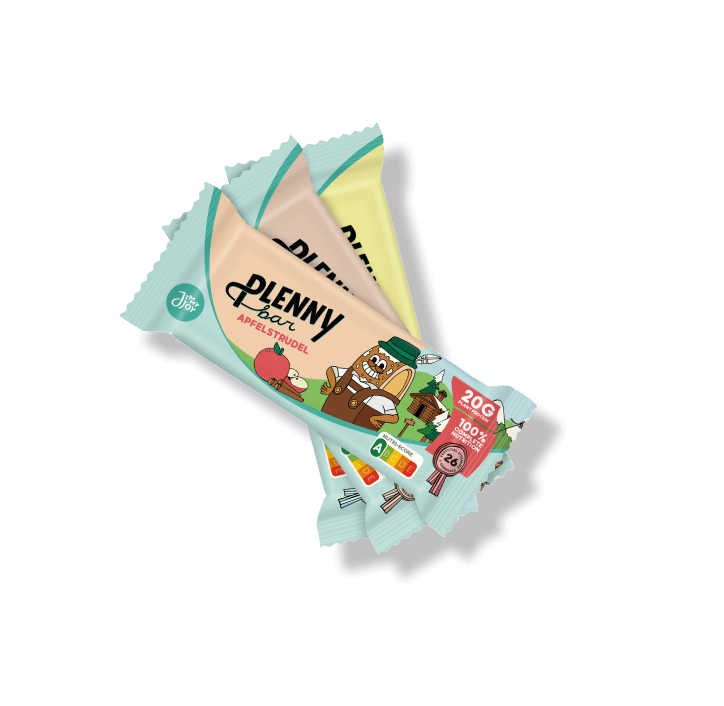



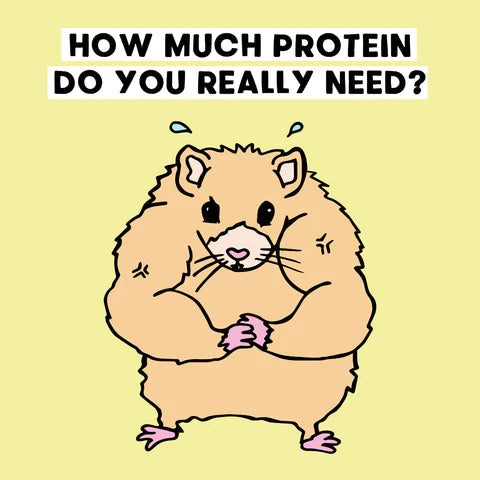









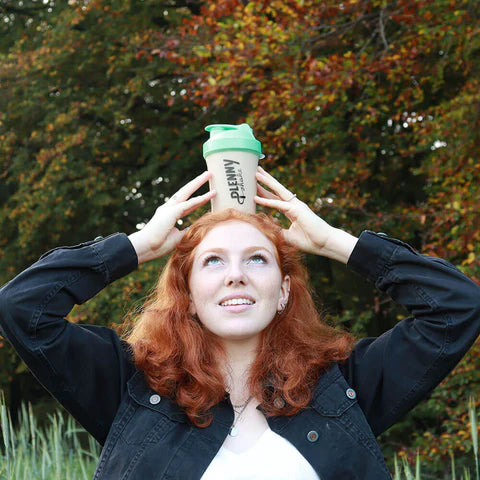

 Product added to cart
Product added to cart




